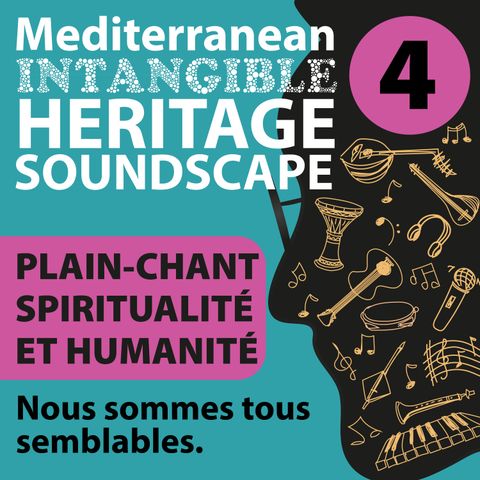Plain-chant, spiritualité et humanité. Nous sommes tous semblables. | I° Part

Sign up for free
Listen to this episode and many more. Enjoy the best podcasts on Spreaker!
Download and listen anywhere
Download your favorite episodes and enjoy them, wherever you are! Sign up or log in now to access offline listening.
Description
In the beginning it was plainchant with its different forms, many of which were replaced by the Gregorian chant where the Gallican and Roman traditions merged. It is to all...
show moreAbout Marcel Pérès
After studying organ and composition at the Nice Conservatory, Marcel Pérès continued his training in Great Britain and Canada. Returning to Europe in 1979, he specialized in medieval music. In 1982 he founded the Ensemble Organum, and undertook with them a methodical exploration of medieval liturgical repertoires, which resulted in international acclaim. He recorded about fifty discs - most of which have received the highest awards: the Diapason d'or, Classical Awards, Choc de l'année du Monde de la Musique, and the New York Times’ Essential Records of the 20th Century.
Read more
Discography of the episode
Ensemble Organum: Kyrie
from: Machaut Messe de Notre Dame, Harmonia Mundi (1996)
Francesco Cera: Messa Della Madonna – Christe
from: Girolamo Frescobaldi Toccate – Capricci – Fiori Musicali, Arcana (2019)
Ensemble Organum: Office des lectures - III. Gloria in excelsis Deo
from: Chant Mozarabe, Harmonia Mundi (1995)
Francesco Cera: Messa Della Domenica - Canzon Dopo l'Epistola
from: Girolamo Frescobaldi Toccate – Capricci – Fiori Musicali, Arcana (2019)
Ensemble Organum: Sanctus
from: École Notre-Dame Messe Du Jour De Noël, Harmonia Mundi (1985)
Ensemble Organum: Kyrie
from: Chant Corse Manuscrits Franciscains (XVIIe-XVIIIe Siècles), Harmonia Mundi (1994)
Corsican Singers, Mamma risponde nun posso
Marcel Pérès live recording
Spanish Singers, Sanctus
Marcel Pérès live recording
Disclaimer
Mediterranean Intangible Heritage Soundscape is a podcast by Paolo Scarnecchia, produced by UNIMED, Mediterranean Universities Union. Musical works included in the Podcast are used for purpose of illustration for teaching, and not for commercial purposes.
Information
| Author | UNIMED |
| Website | www.uni-med.net |
| Tags |
Copyright 2024 - Spreaker Inc. an iHeartMedia Company
